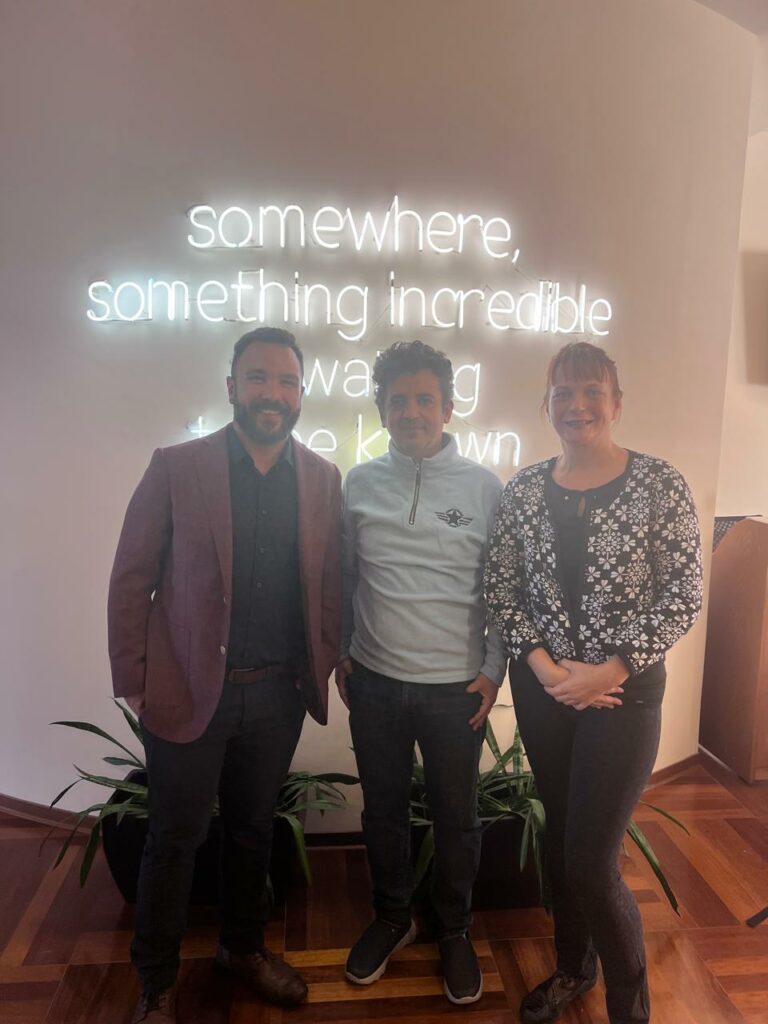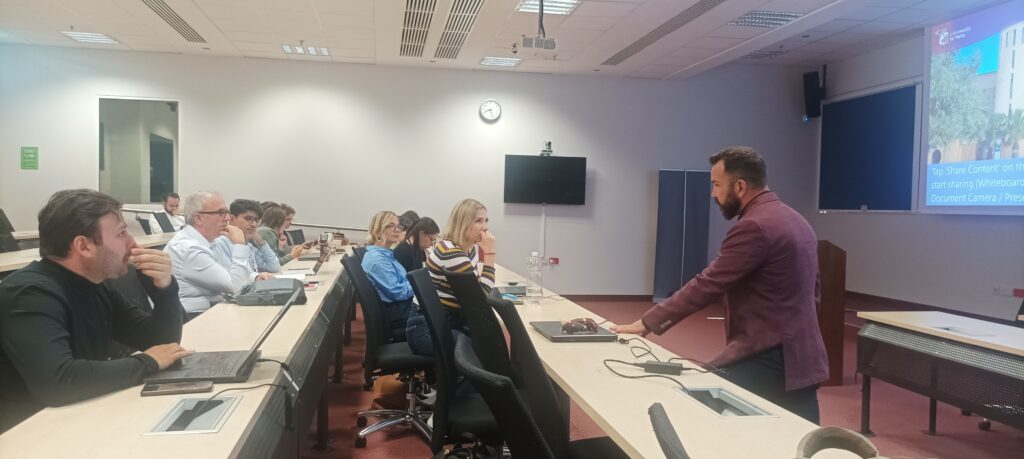With the next ERA-Shuttle Summer School less than a year away, preparations are underway to shape this upcoming capacity-building event that reflects the evolving needs of the research and innovation support community. To this end, representatives from the University of Malta – an ERA-Shuttle beneficiary – recently participated in an advanced training initiative designed to strengthen Horizon Europe proposal writing skills, particularly under Pillar II.
Organised by the University of Malta’s HR Office in collaboration with its Research Support Services Directorate, the two-day workshop took place on November 13–14, 2025. The training, titled Mastering Horizon Europe Pillar II Proposals, was delivered by Dr Paulo Soncini, EU Research Development Officer at the ADAPT Centre.
In line with ERA-Shuttle’s commitment to enhancing R&I support capacity (as outlined in WP4 – Capacity Building through Training), several UM-based beneficiaries of the ERA-Shuttle project joined the workshop. Participants included Ms Angie Mifsud – who previously benefited from an ERA-Shuttle secondment opportunity – and alumni of past ERA-Shuttle summer schools hosted by the University of Split and the University of Gdańsk. Dr Elena Sultana, ERA-Shuttle’s project manager from Malta, also attended to explore how generative AI tools can be used to craft competitive Horizon Europe proposals.
The training served as a valuable preparatory step toward the 2026 Summer School. It offered hands-on, practice-orientated sessions that not only built technical skills but also generated transferable knowledge and best practices for wider dissemination at the widening universities involved in the ERA-Shuttle project.
On Day 1, participants focused on how to interpret call texts, design compelling “Excellence” and “Impact” sections, and align project objectives with broader EU policy priorities—skills that are essential for ERA-Shuttle’s goal of boosting proposal development capacity across sectors.
Day 2 delved into the operational side of proposal writing: consortium composition, budgeting under lump sum funding, and risk management strategies. A standout element was the integration of AI tools into the proposal development process—highlighting how artificial intelligence can support content generation, improve strategic framing, and enhance the overall quality and efficiency of applications.
The insights gained during this training will directly inform the structure and content of the ERA-Shuttle 2026 Summer School, which will be hosted by the University of Malta.
Additionally, this training opportunity reflects the benefits of cross-project synergies. The collaboration between the University of Malta and the ADAPT Centre has been fostered through another widening project – LT Bridge, funded under the Horizon Europe Twinning scheme at the start of the FP9 framework. Leveraging experiences and networks built through earlier widening initiatives strengthens ERA-Shuttle’s capacity to drive institutional transformation and encourage cross-sector collaboration.
Ultimately, training opportunities like this have the capacity to contribute to the backbone of ERA-Shuttle’s mission: to equip R&I professionals with the tools, insights, and networks needed to build more competitive, interconnected, and resilient research ecosystems across widening countries.



